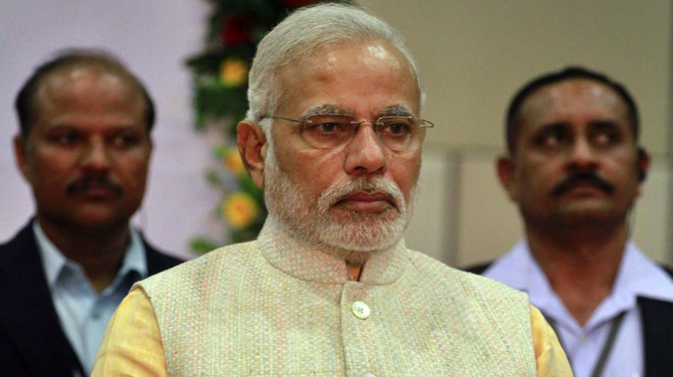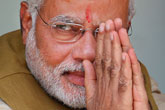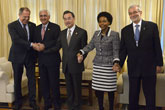Does the West fear a RIC alliance?

Will Narendra Modi be optimistic about the RIC grouping? Source: AP
Years ago, Goldman Sachs economist Jim O'Neill coined the term BRIC for the four largest emerging countries that were threatening the global economic status quo. Now, The Times' columnist Roger Boyes is clubbing the RIC countries- Russia, India and China into what he calls "Putin's anti-US alliance" because in his view, the three allies are a threat to the existing world order.
Boyes is not the only Western opinion maker who is very concerned about the creation of the new alleged anti-American block. According to RT, even the Bilderberg club is concerned about the possibility that Iran and other countries will be drawn to the new block built by Russia and China, making life difficult for the US and its European vassals. Even experts who believe that a formal alliance is unlikely in the near future, like The Diplomat's Dingding Chen, argue that “the US should be careful not to make another strategic mistake that would only facilitate a formal China-Russia alliance.”
There are numerous reasons why a new Asian geopolitical alliance, whether formal or informal, is a good idea for Asian countries, including India and Iran. Banded together with Russia and China, all countries that are threatened by the US' bullying, also known as “US diplomacy,” will feel safer and will have more chances to keep the US bombers and US influence away from their borders. Judging by articles in the Western media, the new American strategy for preventing the formation of a new anti-US alliance can be summed up as “less bullying, more seduction.”
Washington's expert community seems to be very concerned about the implications of India's rapprochement to China and its longstanding good ties with the Kremlin. India's new and hugely popular Prime Minister Narendra Modi has been under US visa sanctions for years, but at the same time he had always found attentive interlocutors in Beijing. If Modi stays true to his own mantra “India first,” then the obvious route for India is to get closer to Russia and China. Becoming a tool for the US' strategy of “containing China” and “isolating Russia” will bring no benefit to India, while Modi himself will always be viewed as a pariah, unworthy to sit at the same table with the likes of Barack Obama or Francois Hollande.
It is interesting that even smart and well-informed western journalists like The Times' Boyes are advising Washington to “court” the new India and play on the “fact” that Russia is “a junior partner” in its relationship with China. The idea that Washington could try and offer some genuine concessions or a mutually beneficial relationship to New Delhi or Moscow doesn't even cross the mind of the British columnist. Such an attitude is a prime example of what's wrong with the US and the EU's foreign policy.
The West should stop treating the East as a set of colonies that can either be bullied or tricked into submission because otherwise all nightmares that Washington's decision makers have because of a potential “Putin's anti-US alliance” will become real in the nearest future.
First published by the Voice of Russia.
All rights reserved by Rossiyskaya Gazeta.
Subscribe
to our newsletter!
Get the week's best stories straight to your inbox

